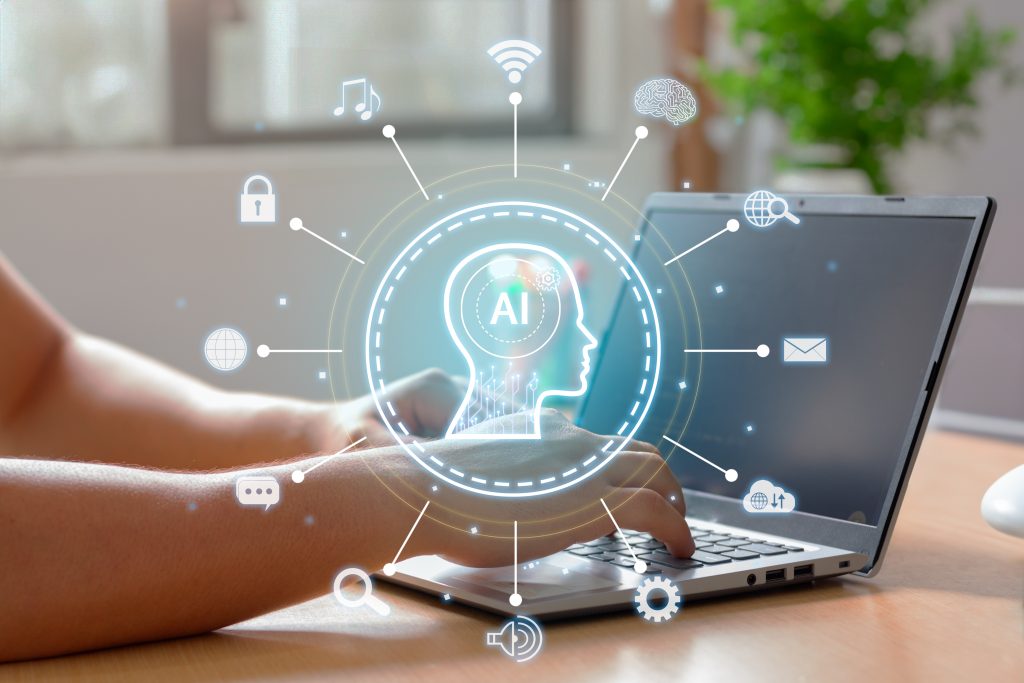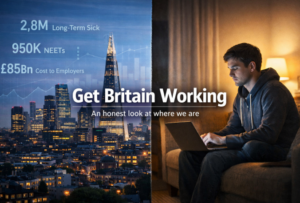As the employment support sector prepares for ERSA’s Employability Day and its timely theme, “Inactivity to Opportunity to Good Work”, the national picture adds fresh urgency.
According to the latest ONS figures, the UK’s unemployment rate has risen to 4.6%, its highest level since 2021, while wage growth has begun to slow. With job vacancies continuing to decline and inflation-adjusted pay growth stalling, the question is not about just getting people into work, it’s about ensuring they are equipped for good, sustainable work.
At the same time, Connect to Work is taking centre stage. Promising personalised, place-based support, but against a backdrop of ongoing uncertainty around commissioning, resources, and delivery models.
So, in this climate, one critical question remains:
How do we deliver more impactful, scalable employability support — without burning out advisors or breaking the bank?
Well, the answer may lie in one particular ally: artificial intelligence.
7.5 million reasons to act
Last week, the Prime Minister launched a landmark national skills drive aimed at preparing the UK workforce for an AI-enabled future. The initiative includes:
- A new TechFirst programme to grow the next generation of UK tech talent;
- Free AI and data skills bootcamps;
- And, crucially, a government–industry partnership to train 7.5 million workers (around 20% of the workforce) in essential AI skills by 2030.
Backed by tech giants like Microsoft, Google, BT, and IBM, the plan focuses on empowering people to use tools like chatbots and large language models to boost productivity in roles across healthcare, retail, finance, manufacturing and everything in between.
While the headlines might focus on tech roles, the real story is more fundamental: AI is set to shape how everyone works, not just those in the digital space.
But the primary goal of this skills drive? To ensure every person, in every region, can thrive in an AI-enabled economy. That includes the people that will be supported by Connect to Work, and the thousands more waiting in the wings of economic inactivity.
It’s a bold, necessary move. But it raises an important question for employability providers: if the future of work will be AI-driven, how are we enabling people to get there?
AI: an enabler, not a barrier
If AI is to become a workplace essential, it must also become an everyday essential. For many participants, the mere idea of AI (let alone using it!), can feel distant, intimidating, or just irrelevant.
This is where employment support providers have a crucial role to play. The people we support won’t just need jobs, they’ll need confidence and fluency in using AI tools and we have a unique opportunity to help them get there.
In our conversations across the sector, from large primes to community-based organisations, a common theme is emerging: we want to give participants every advantage. But we’re constrained by time, admin, case management systems, caseloads… the list goes on.
To that end, the promise of AI here isn’t theoretical – it’s practical.
It’s not about replacing advisors. It’s about amplifying their capacity and empowering participants with self-led support that builds confidence, motivation and digital fluency.
Done right, AI can:
- Help participants explore their goals, skills, and next steps before they walk into a 1:1;
- Create a safe space to practice, reflect, and self-direct;
- Build confidence and fluency with digital tools they’ll encounter in work and life;
- And free up precious advisor time from form-filling and admin – while arming them with insights to drive better conversations.
At Saffron, we believe AI isn’t just a workplace skill to teach. It’s also a powerful delivery enabler that can support participants more personally and efficiently, while freeing up advisors to do what they do best: build relationships and drive outcomes.
From ambition to action
The government’s ambition is clear, and Connect to Work signals the direction of travel: blending high-fidelity, place-based support with scalable delivery models.
If that’s the future, then digital can’t remain a bolt-on. It needs to become an enabler by design.
Not every participant will want to engage face-to-face. Not every advisor will have capacity for deep coaching with every individual. And not every job will wait. But a digital foundation – personalised, proactive and proven – can extend reach, increase impact, and reduce time to outcome.
AI can be the bridge…
Not as a cold, impersonal interface, but as a tool to extend reach, reduce barriers, and personalise support in a way that’s scalable and cost-effective. It’s time to move beyond the fear of AI as a job-taker and start embracing its role as a job-maker.
At Saffron, we’ve been working closely with providers to explore what practical, ethical and impactful AI-enabled support looks like in real-world employability programmes.
Our platform, Create Your Own Future, is built to provide participants with a guided, personalised digital journey that complements and enhances (not replaces) advisor-led delivery.
And the results speak volumes:
- 40% reduction in advisor support hours per participant, freeing up time for meaningful human interaction.
- Up to 45% cost saving through streamlined onboarding, skills assessment, and goal-setting.
- 60 additional participants supported per coach – with no compromise on quality.
- And most importantly, a 92% increase in confidence within 30 minutes of first use.
This is what happens when technology is designed with human connection at its heart.
Building readiness for the future of work
As ERSA’s Employability Day reminds us, there is people at the heart of this. Those who are currently disengaged or unsupported, and need routes not just into jobs, but into meaningful, sustainable work.
As a sector, we have the power to not just help people into a job – we can help them build sustainable futures.
The future of work will be AI-enabled. So if we’re to deliver on the promise of opportunity for all, then our programmes (and our participants) need to be AI-enabled too.
Now’s the time to turn policy ambition into participant impact. And that starts by asking: What role should AI play in your service delivery, and what’s stopping you from exploring it today?
From idea to impact
Whether you’re preparing to deliver Connect to Work or simply rethinking your current service model, we’d love to share what’s already working — and help you explore what’s possible.
Get in touch with one of the Saffron team and let’s turn inactivity into opportunity, together.







